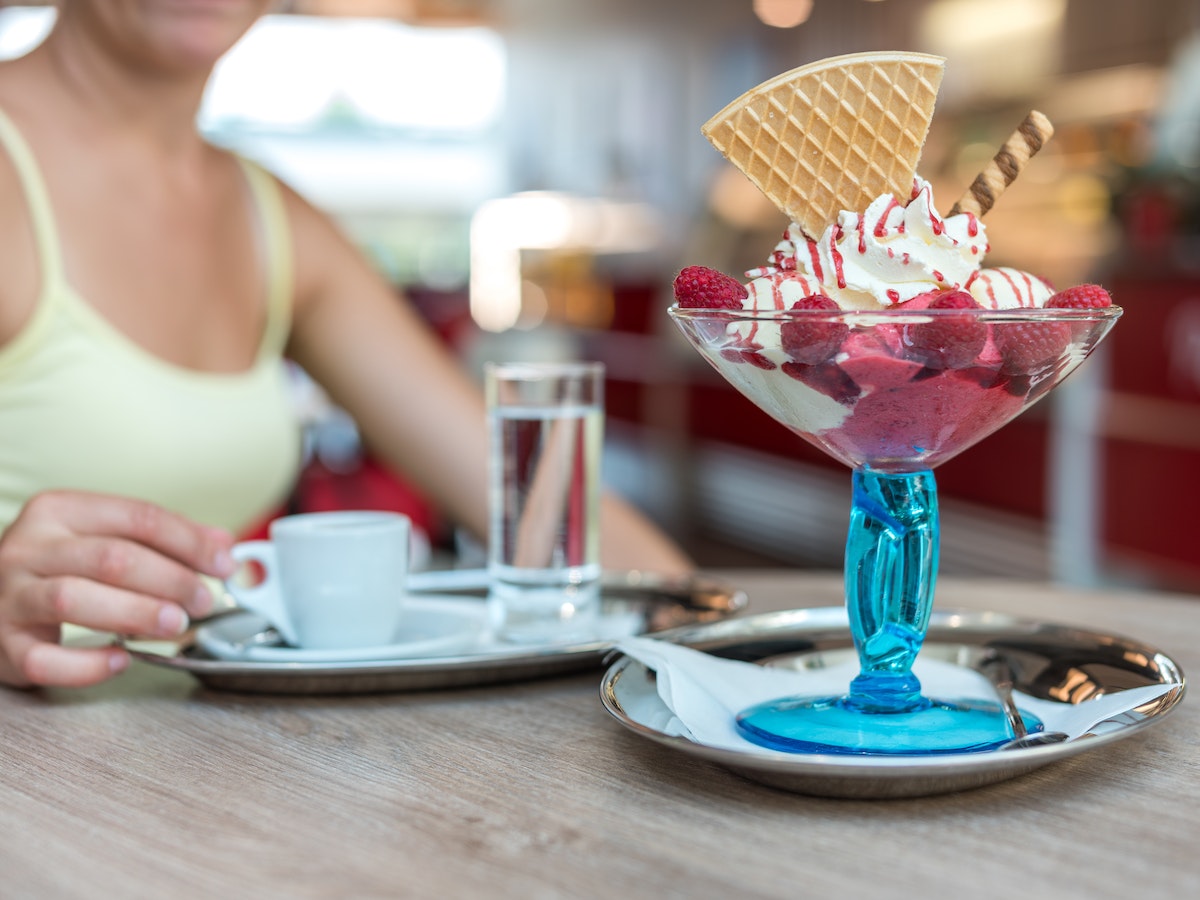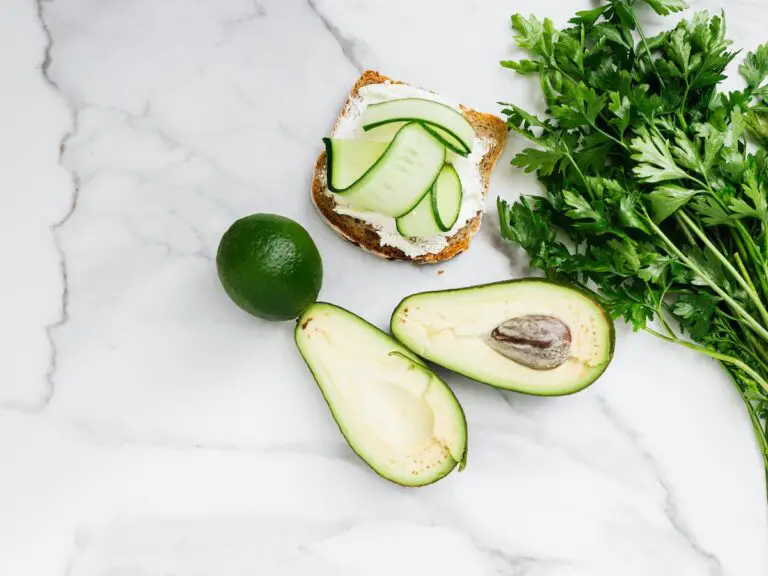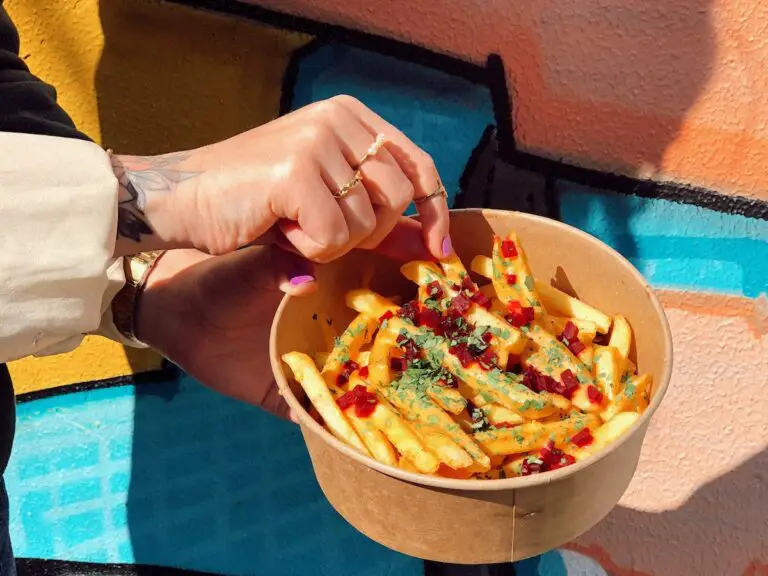Does Ice Cream Cause Acne? What Science Says
Eating a scoop of smooth, dreamy ice cream on a hot summer day is one of life’s simple pleasures. But could your favorite ice treat be bad for your skin?
Oh, the age-old question: Does ice cream make you break out?
So, buckle up and get ready to learn about the world of pimples and sprinkles! This blog post will explain how ice cream can lead to acne. We’ll look at scientific studies, talk about our own experiences, and find some helpful tips for getting rid of those annoying spots while still filling your sweet tooth.
So grab your spoon, and let’s dig in!
Table of Contents
Understanding Acne
Acne is a big problem for a lot of people. It’s a common skin problem that affects millions of people all over the world. What is acne, though, and why does it happen? Let’s learn more about zits, blackheads, and whiteheads.
Most acne is caused by too much oil, blocked pores, germs, and inflammation. The sebaceous glands in our skin make sebum, an oily substance that keeps our skin wet. But acne can happen when these glands make too much sebum or when dead skin cells get in the way of the hair shafts.
Hormones also have a significant impact on how acne forms. Changes in hormones can cause an increase in oil production during puberty, which can lead to breakouts. This is why acne in teens is often worse than acne in adults.
Some things, like diet and stress levels, can worsen acne-prone faces even though there isn’t solid scientific proof that certain foods like ice cream cause acne for everyone!
It’s important to remember how people react to different foods can change! Some may find that eating dairy products or sugary treats like ice cream worsens their acne. In contrast, others may not notice any link.
So, knowing what causes acne is essential to treat it well. Some studies have found a possible link between eating dairy and an increased risk of acne for some people, but there needs to be more solid proof.
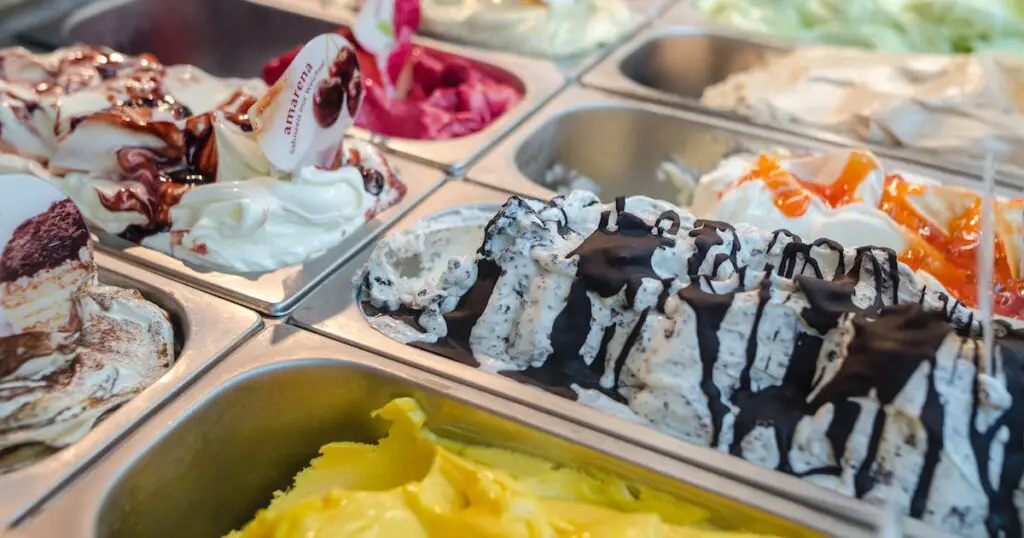
Ice Cream Ingredients and Their Potential Effects
Ice cream is a treat that people of all kinds enjoy. It’s a famous treat, especially during the hot summer, because it’s smooth and sweet. But if you have acne, you might wonder if your love of ice cream could worsen those annoying breakouts.
When it comes to the ingredients in ice cream, a few things could be bad for your face. Dairy is a popular ingredient in a lot of store-bought ice creams. Because of how they affect hormones, dairy products have been linked to acne. Milk has hormones like IGF-1, which is linked to more sebum production and inflammation, which can cause acne.
Sugar is another thing that is often in ice cream. Researchers have also found that people who eat a lot of sugar are more likely to get acne. Sugar can cause spikes in blood sugar, which can cause inflammation and cause chemicals to be released that can make acne worse.
Some people may also be allergic to or sensitive to some ingredients used to make ice creams, such as artificial chemicals or food colorings. These additives could cause inflammation in people prone to it and worsen skin problems in people with them.
It’s important to know that there is a limited scientific study on the direct link between eating ice cream and getting acne. Studies have found links between some foods and acne, like sugary treats and dairy products with a high glycemic index. However, more research is needed before we can say how ice cream affects acne.
Still, people have very different experiences with how different things affect their skin types. Some people say they get pimples after eating dairy or sugary foods like ice cream, while others may not have any problems.
If you think your favorite frozen treat might worsen your skin condition, keep a food log to track what you eat and how your skin changes. This can help you figure out which food is causing the breakout.
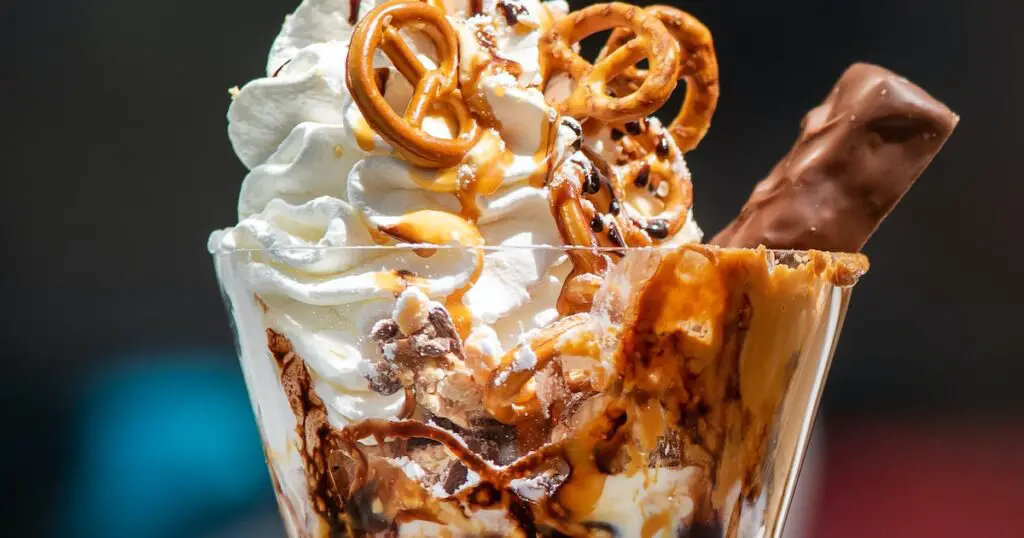
Scientific Research on Ice Cream and Acne
Over the years, many studies have determined the link between eating ice cream and getting acne. These studies find out if this frozen treat can cause those annoying pimples.
A study in the Journal of Clinical Dermatology found that some dairy products, like ice cream, may worsen acne. Researchers thought that hormones in milk products could cause the face to make more oil and become inflamed, which could lead to acne.
The Journal of the American Academy of Dermatology looked at data from a big group of teenagers for another study. It found a link between foods with a high glucose index, like ice cream, and a higher risk of acne.
But it’s important to remember that these studies only show a weak link between ice cream and acne. When it comes to skin health, many other things are at play, such as genes, hormone changes, and the general diet.
It’s important to note that not everyone will get pimples after eating ice cream or any other dairy product. Because everyone’s body is different, some people may notice a link between what they eat and acne outbreaks. In contrast, others may not notice any changes.
Personal Experiences and Anecdotal Evidence
Personal stories and anecdotes can be helpful when it comes to the link between ice cream and acne. Even though the scientific study is critical, hearing from people who have seen a link between eating ice cream and getting acne adds another level of understanding.
Many have talked about how their skin broke out more after eating their favorite frozen treat. Some people say that dairy or sugar, popular ingredients in ice cream, make their acne worse.
But it’s essential to remember that everyone’s situations are very different. What makes one person break out might not do the same thing to another. How our skin reacts to different foods depends on our genes, general diet, skincare routine, and other choices we make about our lives.
In the next part of this blog post, we’ll talk about how your lifestyle can affect how you treat acne. By thinking about these things, as well as your own experiences and the results of scientific studies, you can make smart decisions about how much ice cream you can eat while still caring for skin health.
Lifestyle Factors and Acne Management
When it comes to getting rid of acne, your lifestyle plays a big resignification keeping your face clear and healthy. Even though ice cream might not directly cause acne, other things in your life could make your acne worse.
One important thing is what you eat. Even though there isn’t a lot of solid evidence that ice cream causes acne, overeating food can cause inflammation in the body, which can lead to acne breakouts. A balanced diet with many fruits, veggies, lean proteins, and whole grains is always good.
Managing stress is another important part. Stress has been shown to make acne worse by making the body make more sebum and causing more inflammation. Taking part in things you enjoy, like exercise, meditation, or hobbies, can help reduce stress and improve your general health.
A good skin care practice is also important for getting rid of acne. Using gentle cleansers made for your skin type to wash your face every day helps get rid of extra oil and dirt that can clog pores. Using moisturizers that don’t cause acne and avoiding harsh products can also stop inflammation from worsening.
Sleeping is important for healthy skin because it gives cells time to repair and grow. Lack of sleep can throw off the balance of hormones, which can lead to more sebum production and more breakouts.
Even though eating ice cream occasionally might not be bad for your face directly, other things in your life could affect your overall complexion. By taking a well-rounded approach that includes a healthy diet, ways to deal with stress, a regular skincare routine, and enough restful sleep, you’ll be on your way to better skin.
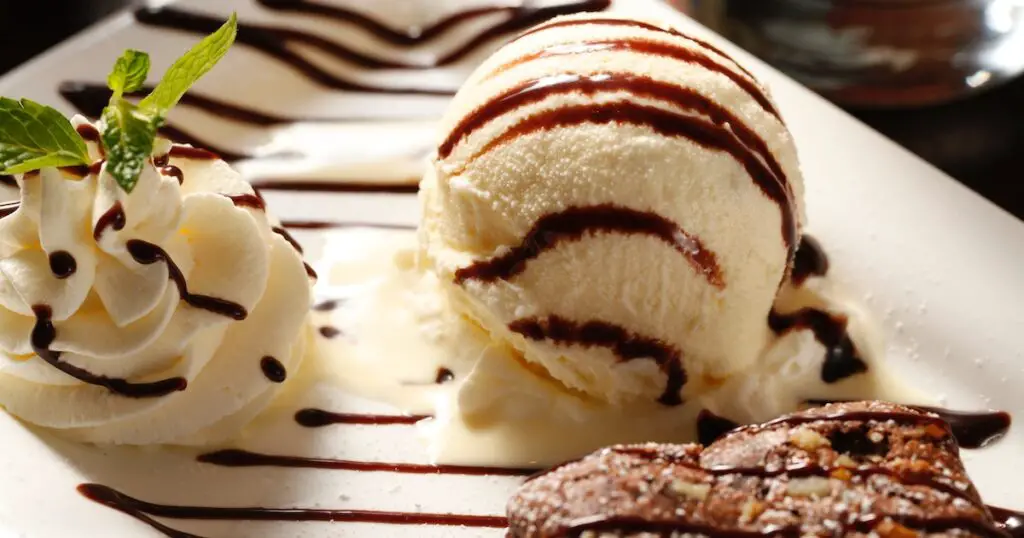
Practical Tips for Managing Acne While Enjoying Ice Cream
- Restraint is key: Eating a big, creamy sundae every day is tempting, but try to enjoy ice cream in restraint. Choose smaller amounts and think about occasionally having it as a treat instead of every day.
- Make a smart choice: Not all ice creams have the same nutrients that are good for acne. Look for choices without added flavors, colors, or too much sugar. Instead of standard ice cream made from milk, you might want to try sorbet or frozen yogurt.
- Be careful with your toppings: Think about what you put on your ice cream. Instead of syrups with a lot of sugar, try fresh veggies or nuts.
- Stay hydrated: Drinking a lot of water can help your body get rid of toxins and keep your skin moist, which may make breakouts less likely.
- Eat a well-balanced diet: Your general food choices play a big role in how you treat acne. Focus on eating foods high in nutrients, like fruits, veggies, whole grains, lean proteins, and healthy fats, along with ice cream treats occasionally.
- Set up a skincare routine: Even if you eat desserts like ice cream, acne flare-ups can be kept to a minimum by using a steady skincare routine for your skin type.
Remember that everyone’s skin reacts differently to different things, including ice cream. Because of this, these tips might not work for everyone, but they could help you manage acne and still enjoy that delicious scoop.
Conclusion
People often think that eating ice cream can cause acne, but the scientific proof on this subject is still unclear. Acne is a complicated skin condition caused by genes, hormones, diet, and how you take care of your skin.
Even though dairy and sugar, both found in ice cream, have been linked to increased inflammation and hormonal imbalances, both of which can lead to acne flare-ups, it’s important to remember that everyone reacts differently. Some people may be more likely than others to feel these effects.
People’s ideas about ice cream and acne are also affected by their own experiences and stories they hear from other people. Some people say their skin worsens after eating ice cream treats, but others say they don’t notice any change. Remembering that what works for one person might not work for another is important.
You need to think about more than just your diet to get rid of acne. Adopting a complete plan that includes good skin care routines, ways to deal with stress, regular exercise, enough sleep, and healthy eating can all help clear up your skin.
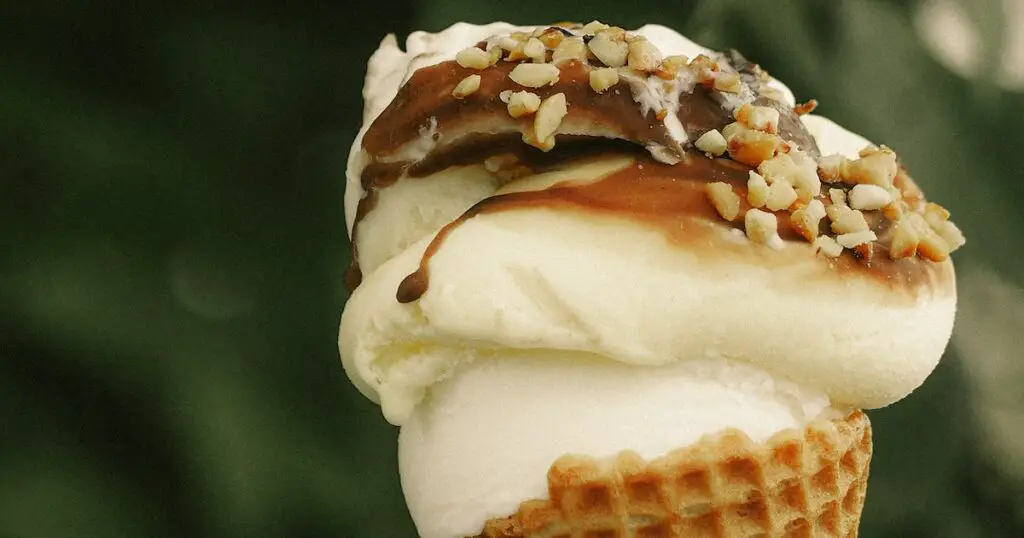
FAQs
To keep ice cream from making acne worse, choose flavors with less sugar and avoid sauces and syrups that can worsen acne. Moderation is key, so have ice cream as a treat occasionally and eat a well-balanced diet with lots of water and nutrients to keep your skin healthy. Also, having a normal skincare routine and washing your face after eating ice cream can help eliminate any extra oils or residues causing acne.
To avoid acne after eating ice cream, choose ice cream with less sugar and avoid ingredients that could cause acne, like dairy or fake ingredients. Also, keeping up with your health by washing your face after eating ice cream and sticking to a regular skincare routine can help reduce the chance of getting acne. It’s important to pay attention to your body and choose foods that are good for your face.
Ice cream could be bad for your skin because it has a lot of sugar and ingredients like dairy that could be triggers. When you eat a lot of sugar, it can cause inflammation and make acne worse. Dairy products, like ice cream, may also affect hormone levels and cause the face to make more oil, which can cause acne to flare up. It’s important to remember that everyone reacts differently, so it may be good for your skin health to listen to your body and limit how much ice cream you eat or look into other options.
When you eat a lot of ice cream, your body may react differently. Ice cream has a lot of sugar and fat, making you gain weight and more likely to get diseases like diabetes and heart disease. It can also cause inflammation and hormonal changes, making acne worse. Also, eating too much ice cream can cause digestive problems like bloating, pain, and a possible imbalance of nutrients. Moderation is the key to keeping a healthy diet and keeping the bad effects of eating too much ice cream to a minimum.
Some people may not do well eating ice cream on an empty stomach. Ice cream has a lot of sugar and fat, which can cause a quick rise in blood sugar. This can cause stomach pain, changes in insulin reaction, and a higher risk of acne breakouts. Most of the time, it’s best to eat ice cream as part of a healthy meal or snack to keep these effects on the body to a minimum.

General Physician
Senior Medical Writer
